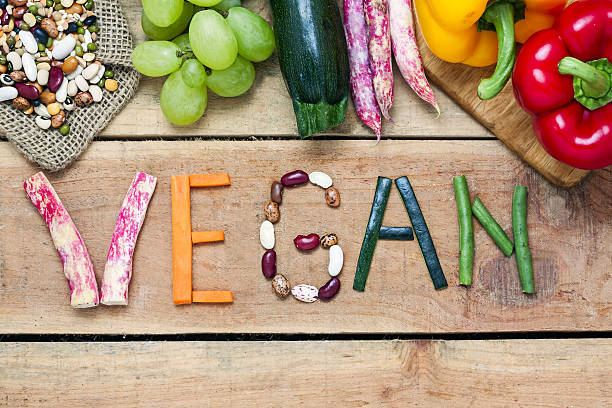A growing number of people are adhering to the vegan or vegetarian lifestyle. You’ve probably seen many restaurant menus informing you if a meal is vegetarian or vegan. What is the difference?
The distinction is more than simply whether someone is a cheese eater. We’ll explain the meaning of each word, what vegetarians and vegans are and do and don’t consume, and what vegan signifies beyond eating. We’ll also discuss related terms like plant-based, flexitarian, and pescatarian.
Summary of HTML0
A vegetarian is a person who adheres to an entirely vegetarian diet, meaning they don’t consume meat of any type (beef or chicken, fish, etc.) and don’t eat any animal flesh in any way). The term vegan generally refers to someone who doesn’t consume or consume any products made from animals. Vegans don’t consume dairy or meat and often do not consume other animal-based foods such as honey. Peoplevegans generally avoid using products made from or derived from animals, such as fur, leather wool, perfumes, and cosmetics that contain animal-derived ingredients.
What is vegan mean?
The term vegan is a term that can be used as an adjective (as in the word “vegan” in a vegetarian eating plan) or a verb (as in “I’m vegan”). It is generally accepted that vegan people do not consume or use products that originate, are created by, or are derived from animals for dietary reasons. This means avoiding any dairy or meat products and other products made from animals, like honey. Although some individuals may adhere to an entirely vegetarian diet, vegans generally do not use products derived from animals, such as fur, leather, or wool. They also steer clear of animal components in products for cosmetics (such as dyes made of insects) and fragrances (such as the components of the scent glands of animals), as well as other products. Vegans are also known to avoid those products tested using animals. However, not all who identify as vegans strictly adhere to these rules.
There are a variety of reasons one might choose to be vegetarian. Many people opt for the vegetarian diet for nutritional or health reasons, and many vegans make their choices based on their belief in the importance of the welfare of animals. Other people may be concerned about animal products’ contribution to causing CO2 atmospheric levels. In many instances, the decision to adhere to the vegan lifestyle is an outcome of combining these factors or other factors.
What foods do vegans consume? What are the foods that vegans shouldn’t eat?
The vegetarian diet is usually regarded as plant-based, meaning it is made up primarily or entirely of food items made from plants, such as fruits, vegetables, and grains. Vegan proteins include nuts, bean seeds, legumes, and beans.
Vegans do not consume animal or animal-derived items like dairy products, meat (like cheese, milk, and butter), eggs, or milk.
There are a variety of processed foods that can serve the role of vegan alternatives to these products. This includes things like vegan “butter” and vegan mayo (made with eggs), as well as non-dairy “milk” products (like almond milk, soymilk, and Oat milk) and other products commonly described as “meat substitutes,” including tempeh, tofu, and seitan, and in recent times, products such as the Impossible hamburger.
Certain foods are considered nonvegan, even though they’re not dairy or meat. Honey is generally considered nonvegan since it’s the product made by honeybees. Certain items are considered nonvegan for various reasons, not just because they’re made from animal products but because they are processed using animal products. For instance, certain sugars are deemed nonvegan because they are processed with animal bones.
Indeed, a vegetarian diet is usually linked to healthy foods such as vegetables; however, simply because a food item has been declared vegan does not necessarily mean it’s healthy. Certain processed sweets are vegan, for instance.
For the omnivores in our society, Do you consider fish “meat”?
What does the word “vegetarian” mean?
The term vegetarian is a possible adjective (as in the term “a vegetarian diet) or an adjective (as “I’m a vegetarian”). Vegetarians don’t consume meat. Sure, vegetarians might also opt out of using certain products made from animals (such as leather) that require the death of animals. However, the term vegetarian is usually related to diet.
Vegans can choose to stay clear of meat for various reasons, including animal welfare, personal health, the environment, or any combination of these and others.
What foods do vegetarians consume? What can vegetarians and non-vegetarians avoid?
As with what vegans eat, vegetarians’ vegetarian diet is usually primarily plant-based. The primary distinction is that vegetarians consume nonmeat animal products, notably eggs and dairy products, typically used as the primary protein source, and non-animal sources, such as legumes, beans, nuts, and seeds.
Certain foods that are deemed non-vegetarian may not be apparent. For instance, Parmesan cheese is produced with animal tissue, also known as Rennet. Certain beers and wines contain fish-derived gelatin, referred to as isinglass, as many candies and desserts use gelatin in its natural form. It is created using animal tissue. However, not all vegetarians can avoid any of these foods.
What is the definition of a Flexitarian? What is a pescatarian?
Certain people might follow predominantly vegetarian and vegetarian; however, they may also consume certain foods that are typically excluded from such diets. The term “flexitarian” refers to someone who eats a primarily plant-based diet; however, they occasionally consume seafood, meat, or poultry. A Pescatarian is a person who follows a mostly vegan diet. However, he consumes seafood and fish in addition. (Both words can be used to describe these people’s diets).

